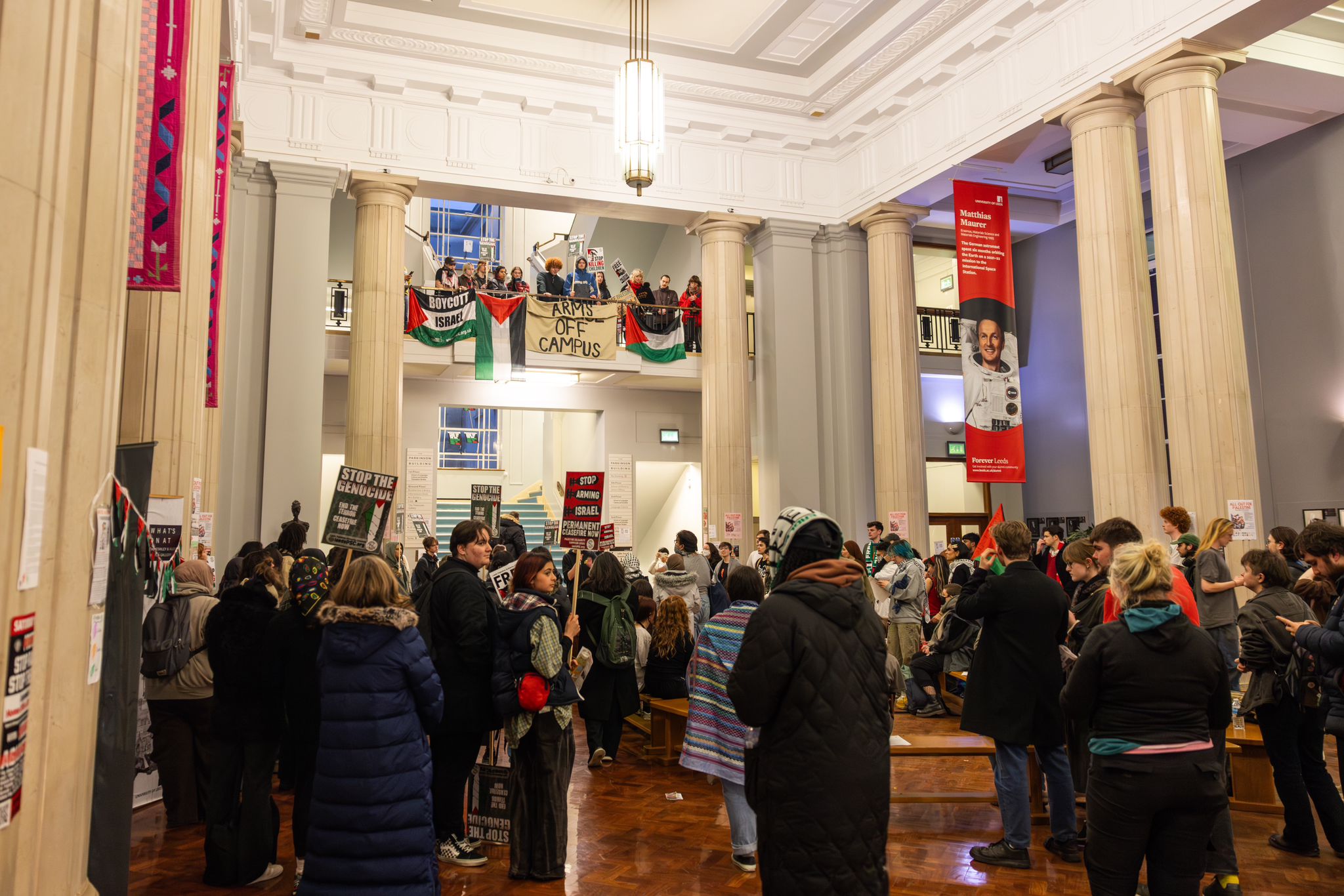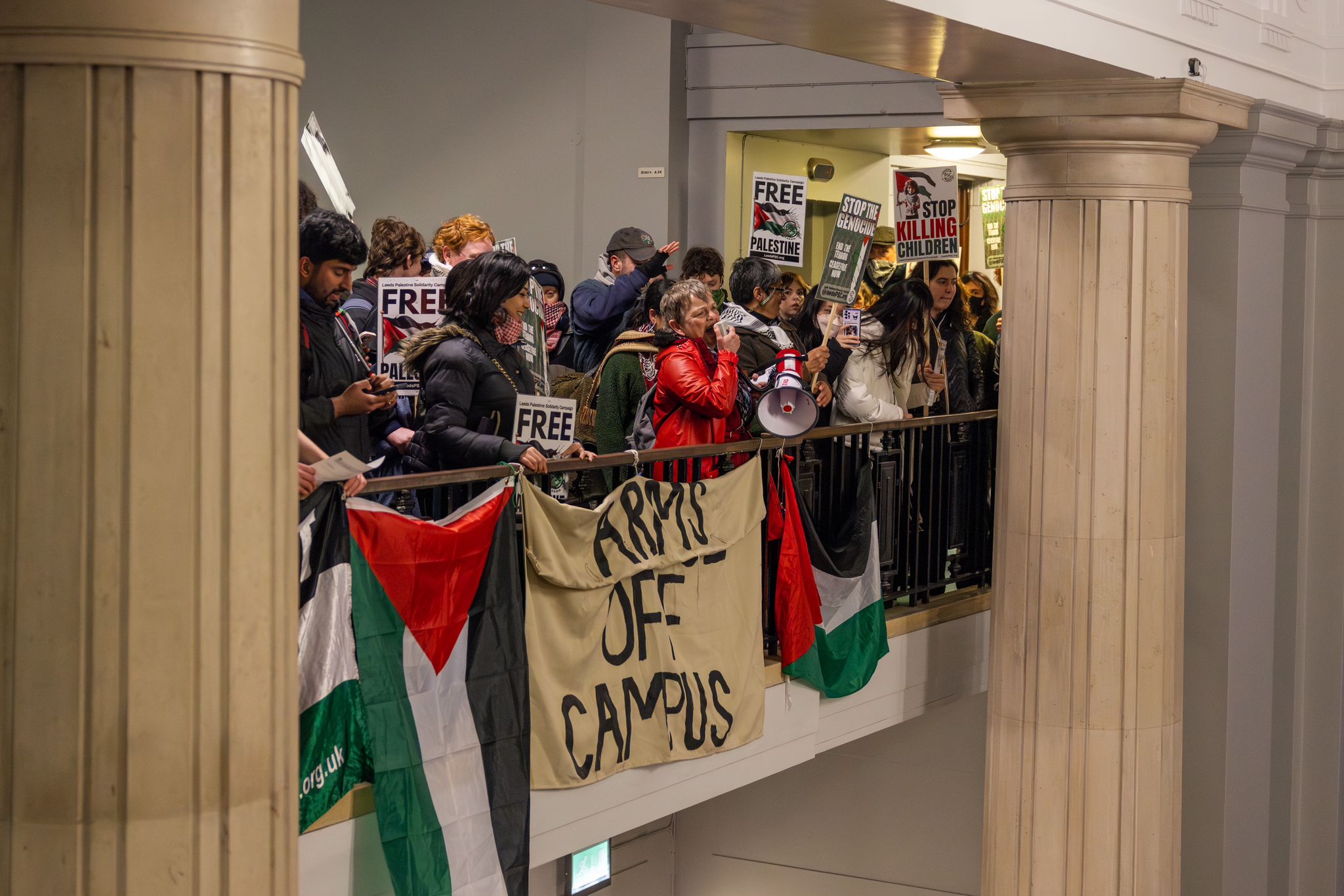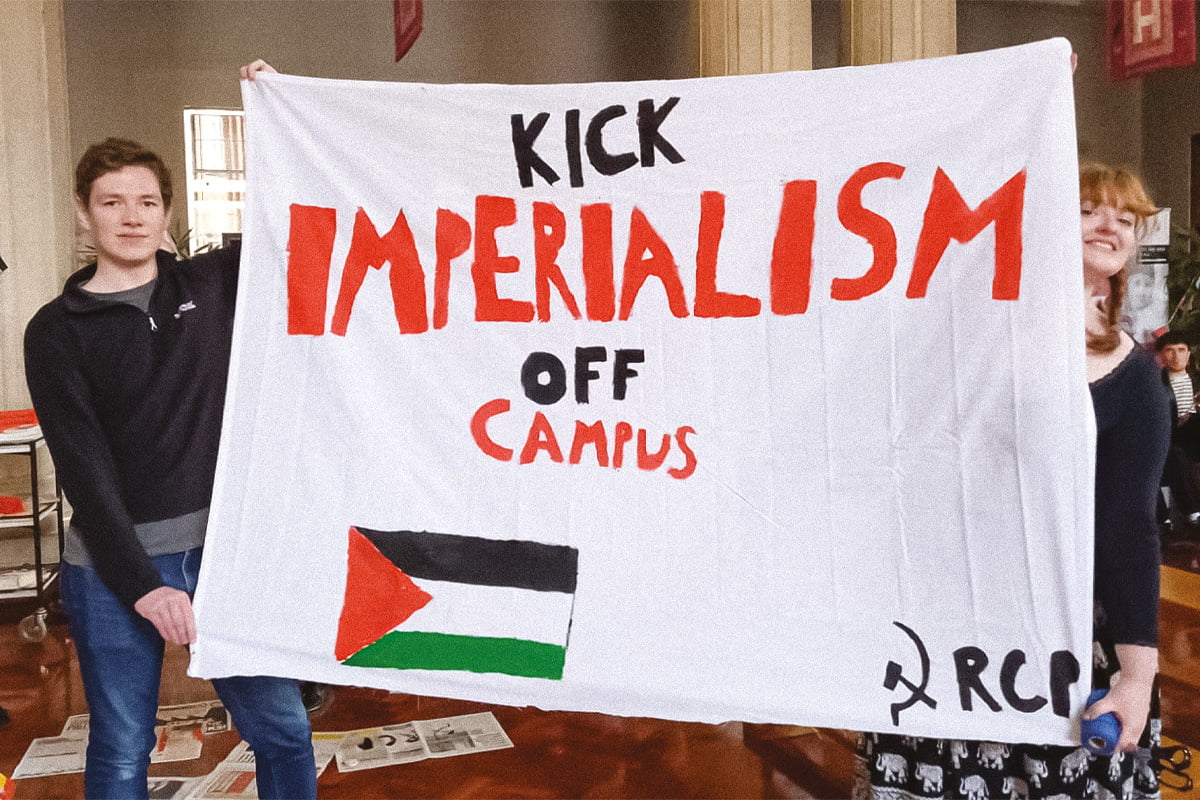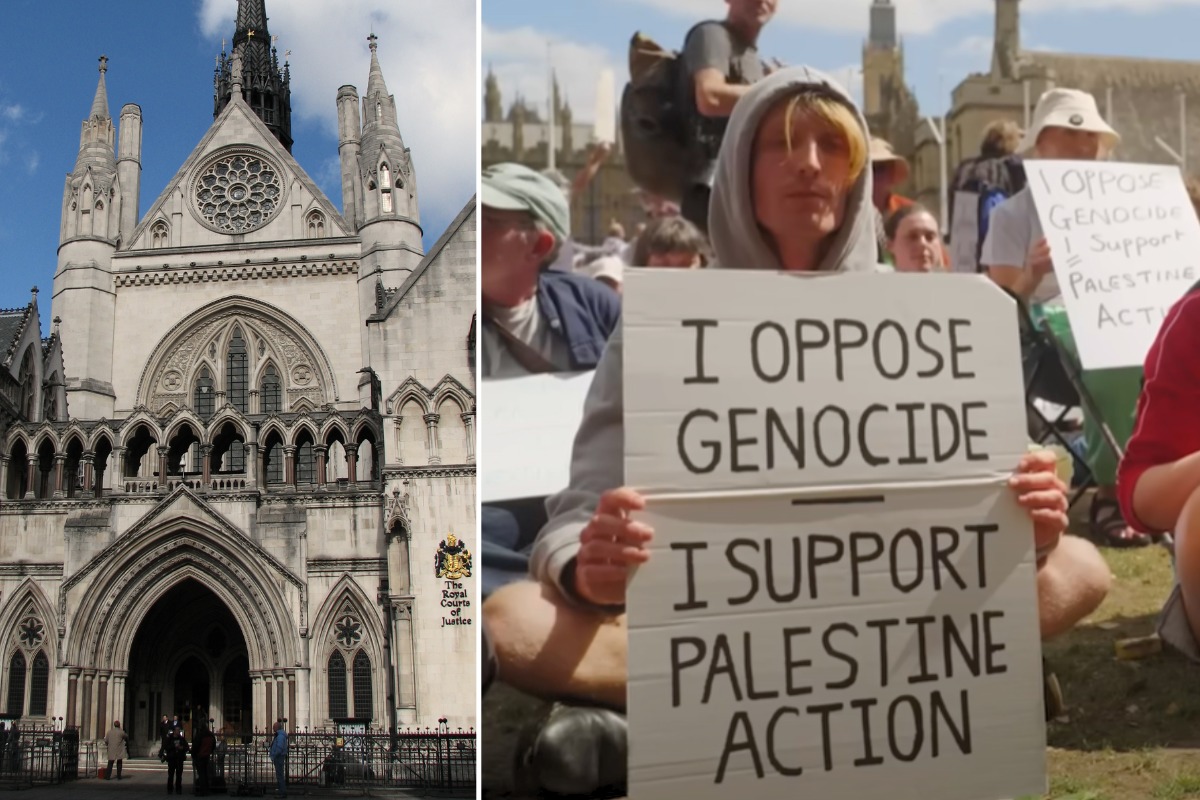Throughout March, a number of students active in the Palestine solidarity movement have gone a step beyond rallies and demos, and occupied university buildings.
Such actions have been taken in Leeds, Bristol, Nottingham, Goldsmiths, UCL, and Manchester. In Leeds, in particular, our comrades have gotten stuck in.
For the movement to succeed, it’s important for us, as students, to examine the effectiveness of occupations, and to look at our role in the struggle against capitalism and imperialism – on campuses and beyond.
Support
Many of these occupations should be commended for opening up to the wider student body by holding regular teach-ins and workshops.
This provides a space for politics to be discussed, and for staff and students to express their views on Palestine, imperialism, and their universities’ complicity.
In the context of a persistent crackdown by the authorities on Palestine solidarity and democratic rights, this is welcome.
View this post on Instagram
There can be limitations to this, however, if occupations are not linked to the task of building and expanding the movement beyond the confines of a single room or building.
Ideally, an occupation should only be considered once support has been built amongst the wider student body and its most active layers.
Then, once an occupation begins, those involved should spread the movement’s demands. Convincing more students to join in and building wider support is vital.
Small student occupations often have a tendency towards introspection. The focus becomes merely sustaining an occupation.
Excessive amounts of time can also be spent making the occupation a “safe space”, planning stunts, or putting on workshops, for example, than actually building support for the occupation and its demands.
Expand
Once an occupation begins, those involved should establish regular outreach stalls, door knocking, lecture shout-outs, leafleting, and postering. Spreading the demands of the occupation, convincing more students to join the occupation, and building support is vital.
Unfortunately, in Bristol, the occupiers have chosen to move from a student building to a management building, hoping that annoying management might result in concessions. But this has left the occupiers isolated from the wider student body.

We must be clear: an occupation that does not continually grow and expand will ultimately not succeed. The bosses are well-aware of this too.
They will happily ‘sit out’ an occupation, waiting for tiredness and fatigue to set in. They do this in the knowledge that the activists are only a small layer of the student body – even if the cause they represent, such as Palestine, is one that the mass of students care about.
Positively, the Leeds occupation did shift towards drawing in new layers of students. When we held stalls, we found that students were often unaware of the occupation but were supportive – and even willing to join – once discussed with.
This demonstrates the enormous potential for broadening the movement, given how wide the anger is against the British establishment for its complicity in the genocide in Gaza.
Demands
Demands put forward in these occupations mainly concern cutting universities’ ties with Israeli institutions, international banks, and arms companies.
These demands are about kicking imperialism and its influence off of UK campuses. However, you cannot change a leopard’s spots. Even if management relented on this or that demand, there is no guarantee of permanent concessions under capitalism.
After all, imperialism is present on campuses because Britain is imperialist – not vice versa. Universities’ ties to big banks and arms manufacturers have also been entrenched by the marketisation of higher education.
We must look beyond simply negotiating with parasitic university bosses, and instead build a lasting and militant movement to kick them, the bankers, and the death-dealers off campus for good!
Workers
Some occupiers in Leeds suggested the occupation should solely focus on Palestine.
But as we pointed out, the fatcats who invest in arms companies also reduce the pay and conditions of staff. These are all facets of the same system.
This shows the need to connect our demands to the fight for free education, so that universities aren’t reliant on the arms industry for funding, and to staff-student control of universities, so that workers and students can decide how education is run.
Given the ongoing crisis in higher education leading to sweeping job cuts, the potential for a wide movement against marketised education, connected to bold revolutionary, anti-imperialist demands, is there.

With this in mind, it is vital for occupations to connect with campus workers, upon whose labour universities are reliant. They alone possess the power to grind universities to a halt.
Action taken by students can be significant. But it only really gains power when it is carried out in conjunction with struggle by the working class.
In certain instances, such as the events of May 1968 in France, students can even serve as a catalyst for revolutionary explosions. But without linking themselves to the working class they will remain limited in the impact they can have.
Occupations only stand to gain from broadening their horizons to fight management and the capitalist system behind them on all fronts, drawing in students and staff who are motivated by other manifestations of managerial dishonesty and hypocrisy.
Positively, UCU branches across the country have generally expressed support for these occupations, as have other campus unions like Unite and Unison.
Going forward this must be converted into united action by staff and students. Students must link up with rank-and-file union members – convincing them to join occupations, and to even take industrial action in solidarity.
Movement
More occupations are likely after the Easter break. If they are to succeed they must reflect on recent and historic experiences, and develop an outwards-facing, fighting strategy.
This means escalating occupations to involve not dozens, but hundreds. It means drawing in wider layers of students and staff, by broadening demands, and connecting with campus unions.
Ultimately, education will never be truly free from profiteering and imperialism so long as capitalism prevails.
To really kick imperialism off campuses, we must set our sights on free education, reversing marketisation, and putting universities under the control of staff and students.
This is the vision that the movement must fight for, and that the communists will continue to raise.
Preston communists campaign for a revolutionary programme to free Palestine
Inspired by George Galloway’s victory in Rochdale, a Palestine solidarity group in Preston called ‘Children of the Ghetto’ recently ran a hustings to choose an independent, pro-Palestine candidate for the next general election.
The Preston cell of the soon-to-be RCP jumped at this opportunity to get out on the streets and connect our ideas with local residents who have been radicalised by the assault on Gaza.
Our forces are still modest, so we didn’t expect to win this contest. Nor do we have any illusions that one pro-Palestine MP, in isolation, would be a solution.
We used this campaign to go door-knocking, hold stalls, and raise our revolutionary perspective with ordinary people.
Having secured enough signatures, we used our ten-minute presentation to a meeting of over one hundred people to expose the corruption and hypocrisy of our ‘democratic’ establishment, and to put forward a clear communist programme:
- Intifada until victory! From Preston to Gaza, we need a mass workers’ uprising. For a national campaign of strikes, occupations, and workers’ boycotts!
- Down with the imperialists and warmongers in Westminster! No trust in Sunak or Starmer!
- Schools not bombs! Scrap all arms spending immediately. Spend those billions on education, the NHS, and pay rises for workers.
- For workers’ control of the arms factories! Use industry for the benefit of society, not for weapons of destruction.
- For an international socialist revolution! Workers of the world – unite!
This got an extremely positive response. While our candidate did not win, we have successfully planted the RCP’s flag in Preston, widely circulated The Communist, and found people who want to help build the party.






